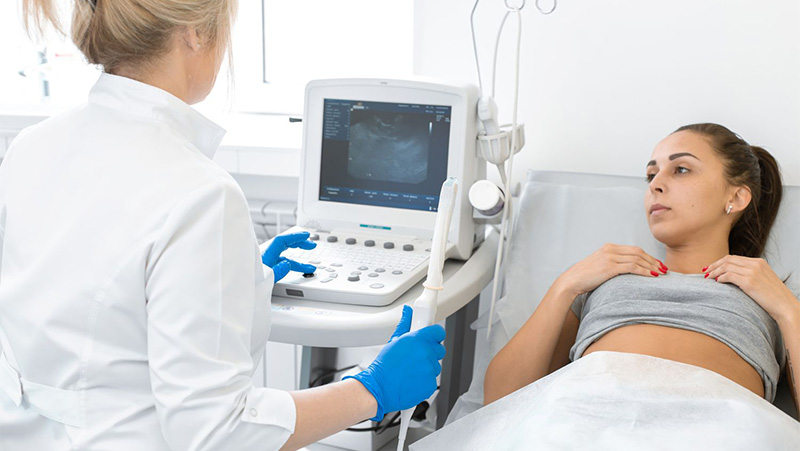When a woman is pregnant, her body goes through a lot of changes, starting from seeing those two red lines of happiness to the day she gives birth to her little one. However, most of the time things go differently than you want them to.
You might have heard about a lot about pregnancy complications and their consequences but do you know about ectopic pregnancy? The American Academy of Family Physicians (AAFP) claims that about 1 out of every 50 pregnancies is ectopic. Rare but shocking, right?
So, What is an Ectopic Pregnancy?
In pregnancy, normally the fertilized egg sticks and grows in the uterus. But in an ectopic pregnancy, things follow a different route— the egg sticks to the fallopian tubes often known as "tubal pregnancy." Sometimes, it might also stick to the ovary, abdomen, or cervix making it a severe pregnancy complication.
Apart from the uterus none of the other places have the right amount of space or the growing tissues that generally support a baby’s development. As the fetus starts to grow, it can end up bursting the sack holding it. Your uterus is the only best place for your baby’s development because it can stretch and get bigger. However, on the other hand, your fallopian tubes cannot stretch too hard. Therefore, if the fertilized egg keeps growing in there, the tubes can end up bursting leading to serious blood loss or even the death of the mother.
Therefore, if you are going through an ectopic tubal pregnancy, it is important to get the right treatment at the right time to avoid any serious consequences.
Signs and Symptoms of Ectopic Tubal Pregnancy
Detecting ectopic signs can be tricky as they often resemble the symptoms of early pregnancy like—
- Missing periods
- Tender breasts
- Feeling nausea
- Throwing up
- Tiredness
- Frequent urinating
However, the first hint for you could be excessive pain or bleeding. The pain can be in your pelvis, belly, or even in the shoulder or neck. It can be a mild ache or really an unbearable one that occurs either on one side or all over.
Here are some other signs that could be linked to tubal ectopic:
- Vaginal bleeding
- Feeling dizzy or passing out (because of losing blood)
- Having low blood pressure (also due to blood loss)
- Having a sore lower back
Remember— As soon as your fallopian tube begins to bleed, you might start feeling pain in your shoulder or feel like you need to go to the bathroom. These signs and symptoms usually show up between the 4th and 12th weeks.
Also, if the baby keeps growing in the fallopian tube, it might end up bursting the tube leading to severe bleeding inside your belly. These emergency symptoms include feeling extremely dizzy, passing out, and even going into shock. It is very important to get help right away if this happens.
Causes of an Ectopic Tubal Pregnancy
Sometimes, it's hard to figure out why a tubal pregnancy occurs. In certain situations, it might be connected to:
- Inflammation and scarring in the fallopian tubes from an earlier health issue, infection, or surgery
- Hormonal imbalance
- Changes in your genes
- Born with a defective fallopian tube
- Health conditions that impact the shape and working of the fallopian tubes and reproductive organs.
Risk Factors
- You're older than 35
- Smoke cigarettes
- Dealing with STDs (Sexually Transmitted Diseases)
- Had an ectopic pregnancy before
- Scarring from surgery in your pelvic area
- Conceived through IVF or while using a device in your uterus for birth control (like an IUD)
- Got your tubes tied or untied
Diagnosing and Treating an Ectopic

If at any point in time you think you might be going through an ectopic pregnancy, call your healthcare provider right away. Here your doctor might use a special ultrasound wand to take a look inside your vagina. This helps in figuring out whether or not the baby’s sac is in your uterus or the fallopian tube. In addition, they might also do a blood test for the same. If the hormone levels drop and there's no baby sac found in the ultrasound, it is most probably ectopic.
Also, if in case your symptoms are really bad, like extreme pain or severe bleeding, there might not be time for all these steps. In extreme cases, if your fallopian tube is on the verge of bursting, your medical team might conduct an emergency surgery immediately. Getting rid of the sack as quickly as possible is highly crucial for the mother’s health.
The treatment options include—
Medication
According to your doctor if your situation is not that serious, they might prescribe a few medications to handle the circumstances— like methotrexate to prevent the ectopic mass from bursting. This drug helps stop the growth of abnormal cells. You'll get it in the form of a shot, and your doctor will check your blood to make sure it's working.
The medicine might cause symptoms like—
- cramping,
- bleeding, and
- passing tissue,
Surgery
Certain cases might even require surgical treatments to remove the embryo and fix the damages if any. It's called a laparotomy. The surgeon performs a laparoscopy that uses a small camera to inspect the internal condition to repair the tube.
Taking Care at Home
Your medical professional might tell you how exactly can you look after yourself when at home, especially if you have had surgery. The very first and most important thing is to keep the area clean and dry. Also, check for signs of infection like—
- Excessive or continuous bleeding
- A pungent odor from the operated area
- Swelling along with redness
You might notice light bleeding and small clots for about six weeks after the surgery but during this time, remember:
- Not to pick up heavy things
- Stay hydrated to get better sleep and avoid constipation
- Avoid using tampons
- Give rest to your body as much as you can
If you are still in pain after the surgery, check with your doctor immediately for required medical help.
ELI&ELM SPECIAL OFFER!
Can I Try for Another Baby After Ectopic?
Of course! Whenever you and your partner feel like you are now both mentally and physically ready to have a baby, you can always start planning for it.
However, it is usually suggested to wait until your 3rd menstrual cycle after the treatment. For those who did not have any surgery or rather were only prescribed medications as treatment, waiting at least 3 months is compulsory to avoid any harm to the baby.
Even if you had a fallopian tube removed, You can still get pregnant again. Sometimes, women may require fertility treatments like IVF to conceive. Remember the chance of having another ectopic pregnancy is a bit higher if you have already had one before. Therefore, as soon as you get to know you are pregnant again, let your doctor know right away.
The Bottom Line
Every woman needs to have an idea about pregnancy complications and knowing about ectopic tubal pregnancies before planning to conceive is extremely important. If you feel any kind of discomfort or notice unusual signs and symptoms during your pregnancy period, talk to your doctor immediately. Remember getting early help can resolve things faster.
At the end of the day, your and your baby’s health is what matters. If you are already dealing with this condition, do not worry, you are not alone in this. Reach out to your healthcare team professionals or loved ones for support.
Sources:
Cleveland Clinic: Ectopic Pregnancy





















